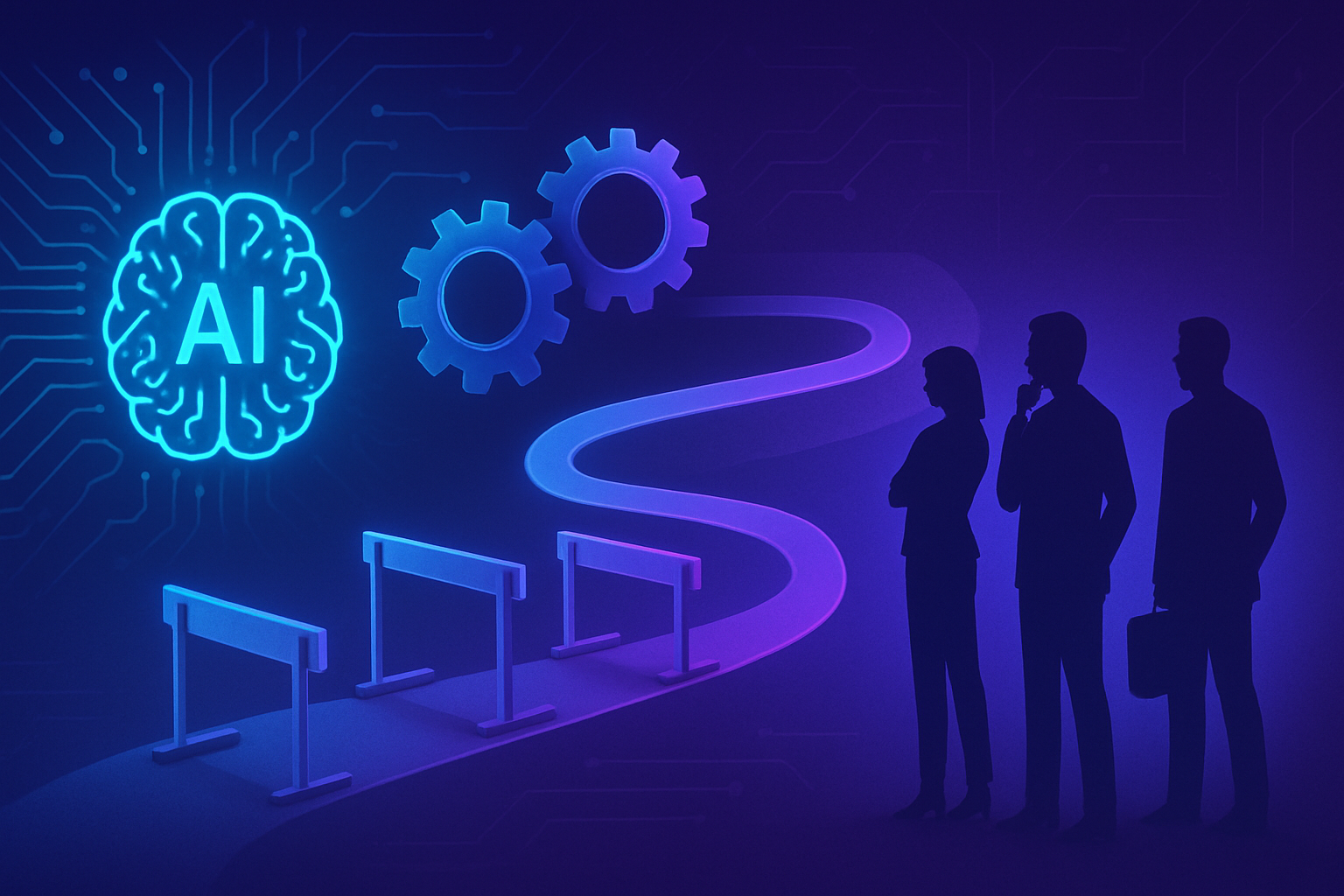The revolution of artificial intelligence is redefining the contours of modern businesses, transforming their operations and structure. Many organizations are *attempting to integrate* this technology into their operational DNA, but they face various obstacles. Regulatory challenges, ethics, and digital infrastructures *complicate* this transition.
At the heart of this mutation, understanding the issues related to AI proves essential for leaders. The need to adopt clear strategies becomes indispensable to navigate a constantly changing environment. With an increasing adoption rate, the impact of AI on innovation and *operational efficiency* is becoming clear, but concerns persist.
Companies must therefore combine innovation and risk anticipation to optimize their return on investment. Consequently, mastering the challenges of AI becomes imperative for anyone aspiring to thrive in this inevitable digital era.
Massive Investments in Artificial Intelligence
France has committed to an investment plan of 109 billion euros for artificial intelligence (AI), announced by President Emmanuel Macron in February. This initiative focuses on the development and integration of AI within companies, a source of technological transformation. In a context where AI is redefining industrial and economic processes, substantial efforts are needed to enable widespread adoption. Organizations must develop suitable strategies to leverage it.
Economic Transformation through Artificial Intelligence
AI significantly alters the French economic landscape. Innovation and operational efficiency are continuously progressing due to the integration of this technology. Sectors are experiencing varied evolutions, although the results are undeniable. Companies that embrace AI reap significant benefits, while those that hesitate struggle to maintain their competitiveness. The return on investment (ROI) is tangible in many use cases.
Adoption Rate of Artificial Intelligence
Research reveals that about 19% of business leaders in France consider AI essential for their success. Integration varies by sector, with promising results in manufacturing (50%), finance (44%), and retail (40%). This underscores the importance of understanding the issues related to AI adoption to capitalize on its transformative potential.
Applications and Benefits of Artificial Intelligence
Among the main applications of AI, decision support systems prevail. These systems enhance the quality of decisions made in businesses. Natural language processing for customer interactions and robotics also play an increasingly important role. More than 74% of employers notice significant improvements in their employees’ skills, as well as a reduction in repetitive tasks.
Challenges Faced by Businesses
Despite the benefits, integrating AI does not come without challenges. Decision-makers express concerns about uncontrollable external parameters, notably inflation and ethical issues. The uncertain regulatory framework remains a barrier to the widespread adoption of AI. As companies gain experience, concerns should diminish, fostering a more conducive environment for innovation.
National Initiatives for Artificial Intelligence
The French government is adopting a national strategy to consolidate its role as a hub for AI development. This initiative aims to optimize public policies while addressing ethical and regulatory requirements. Institutional support will enable companies to explore the new opportunities offered by AI while maintaining a framework of trust.
Toward a Promising Future with Artificial Intelligence
The rate of adoption of artificial intelligence continues to grow. Companies are becoming aware of the transformative potential of this technology, although challenges remain. Increasing investments in AI and the establishment of a regulatory framework promote smoother integration. Only organizations that design rigorous strategies for integrating AI will see their return on investment rise.
Frequently Asked Questions
What are the main advantages of integrating artificial intelligence in businesses?
The advantages include improving operational efficiency, optimizing processes, personalizing customer experiences, as well as measurable financial gains through tools like chatbots and fraud detection.
How to assess the return on investment (ROI) of artificial intelligence?
The ROI can be assessed by measuring the gains achieved through the use of AI, such as increased sales, reduced operational costs, and improved customer satisfaction, compared to the implementation and maintenance costs of the technology.
What are the main challenges faced when implementing AI in a business?
The challenges include ethical concerns, data management, lack of internal skills, uncertain regulatory frameworks, and concerns about the impact on employment.
How can businesses overcome the obstacles to AI adoption?
Businesses can overcome these obstacles by investing in employee training, collaborating with external experts, adopting a gradual approach, and establishing clear policies governing the use of AI.
What role does the French government play in AI development?
The French government implements a national strategy to encourage innovation in AI, establish clear regulations, and support companies to optimize their integration of this technology.
Which industries are the most advanced in the adoption of artificial intelligence?
The manufacturing, finance, and retail sectors are among the most advanced in AI adoption, displaying high integration rates and positive results.
How can AI improve working conditions for employees?
AI helps to alleviate repetitive tasks, thus making employees’ workdays easier, while enhancing their skills and fostering a safer and more efficient work environment.
What is the importance of digital infrastructure for integrating AI into a business?
A robust digital infrastructure is essential to ensure effective integration of AI, as it allows for the processing and analysis of large amounts of data needed for the operation of AI-based applications.






